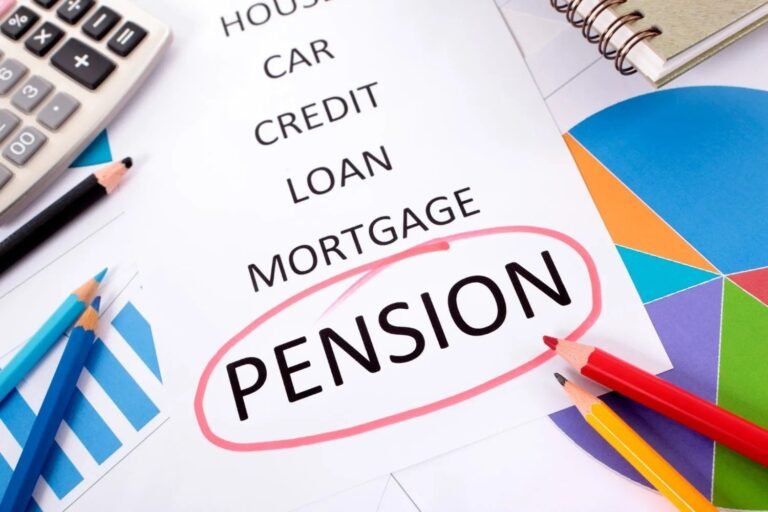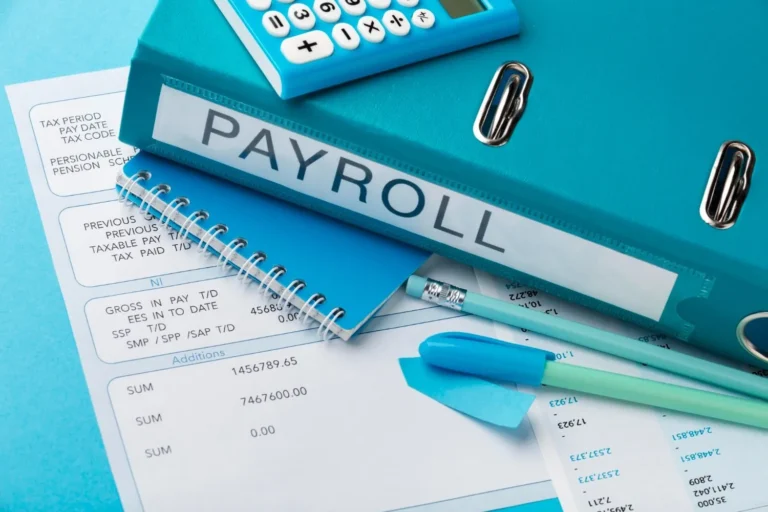Tax might not be the most thrilling topic of conversation, but when it comes to your pension income, a little knowledge can go a long way in securing your financial future. You should make sure you’re not overpaying in taxes on the savings you’ve diligently accumulated over the years.
This article is your guide to navigating the complexities of tax rates on pension income and minimising the burden of higher taxes on your pension income that could significantly impact your financial well-being when you bid farewell to the working world.
Let us explore the various methods of accessing your pension, understand how each impacts your tax liabilities, and gain a better grasp of pension income tax rates.
What are the Tax rates on Pension income?
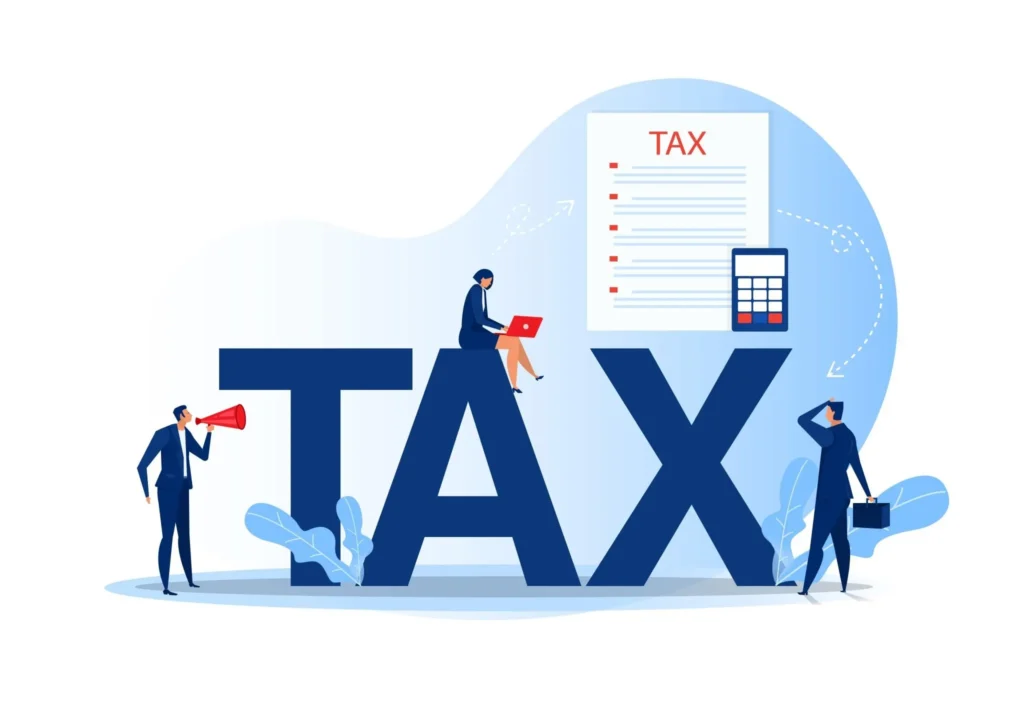
In simple terms, when you are ready to take money out of your pension savings, it is a bit like how your regular job income gets taxed.
The government treats both types of money similarly.
Here is how it works:
- Personal Allowance: Everyone in the UK is entitled to a tax-free personal allowance. As of the 2023/2024 tax year, the personal allowance is £12,570. This means that you can earn this amount in pension income without paying any income tax.
- Basic Rate: The basic rate of income tax in the UK for the 2023/2024 tax year is 20%. Once your pension income exceeds the personal allowance, you will be taxed at this rate on the portion of income within the basic rate band. The threshold for the basic rate is £50,270.
- Higher Rate: If your pension income pushes you into the higher rate tax band, you will be taxed at 40%. The higher rate threshold for the 2023/2024 tax year is £125,140.
- Additional Rate: For those with a substantial pension income, the additional rate of 45% applies. This rate is applicable to income over £125140.
It is important to note that tax rates can change with new tax years and government policies. Therefore, it is crucial to check the most up-to-date tax rates and rules from official sources or consult with a qualified tax advisor for personalised advice based on your specific situation.
But here's where it gets interesting. You have choices! You can pick the smartest way to take out your pension money to make sure you don't have to pay more tax than you should.
Am I required to pay taxes on my State pension income?
The question of whether your State Pension income is subject to taxation is a common one. The simple answer is yes; your State Pension is indeed taxable.
However, the taxation process is not as straightforward as it may seem, and it's essential to grasp the intricacies to determine whether you need to pay tax on your State Pension income.
To provide a more tangible perspective, let's consider an example. Your annual allowance for the tax year 2023/24 is set at £12,570. The maximum new State Pension payment you can receive is approximately £10,600. If your sole source of income is the State Pension, you usually won't incur any income tax.
However, the situation changes if you have income from other sources, pushing your annual income beyond the established allowance. In this case, you would be obligated to pay income tax on the amount surpassing the allowance.
For instance, let's consider Henry is receiving the full new State Pension and an additional annual income of £10,000 from an annuity. His total income reached £20,600 for the year.
After deducting the annual allowance of £12,570, £8,030 remains taxable at a rate of 20%, amounting to £1,606. After-tax, Henry’s net income becomes £18,994.
In simple words, your State Pension is paid 'gross,' meaning it doesn't have any tax deducted at the source. Any tax owed is collected from other sources of earned income you may have.
How can I avoid Tax on Pension Income?
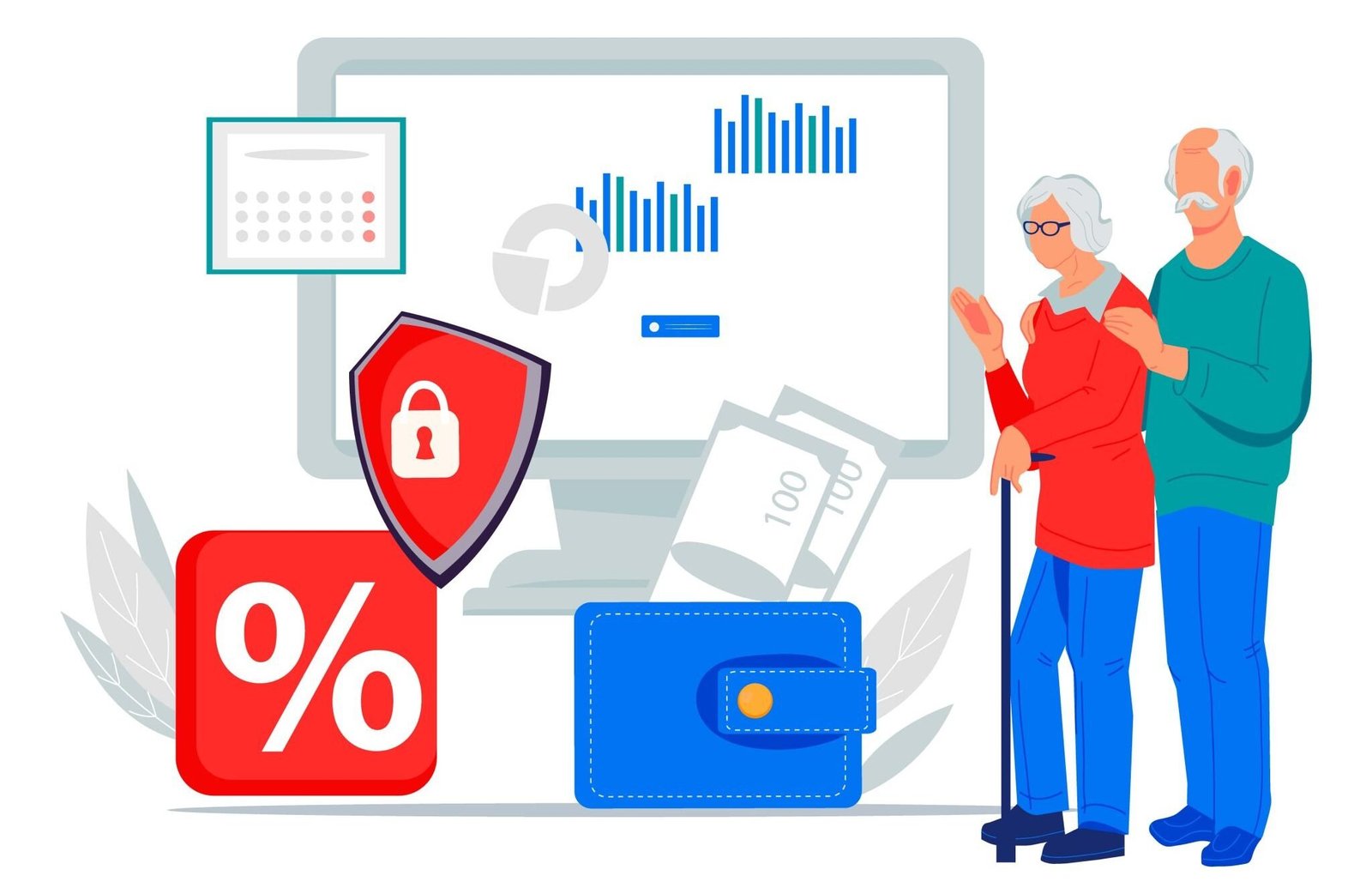
In the UK, there are various legitimate ways to minimise the amount of tax you pay on your pension income. You can save plenty of taxes on pension income by taking advantage of the tax-free lump sum, using flexible drawdown, income splitting between you and your spouse, delaying taking your pension, using ISAs, optimally utilising your personal allowance and seeking professional advice based on your unique circumstances.
Here are some general strategies to consider avoiding paying a higher amount of tax on pension income:
Take Advantage of the Tax-Free Lump Sum
When you access your pension, you can typically take 25% of your total pension savings as a tax-free lump sum. The maximum tax-free amount is 25% of your lifetime allowance, which is typically £1,073,100.
Taking this tax-free lump sum doesn't affect your Personal Allowance (the amount you can earn without paying income tax). If you have special protection for your pension savings, you might be able to take more tax-free.
After you've withdrawn the tax-free lump sum from your pension, the remaining funds may be subject to taxation before they are disbursed to you.
This is a valuable tax benefit, and you should consider using it wisely.
Flexible Drawdown
The introduction of pension flexibility allows you to access your pension in a way that suits your needs. Instead of taking your entire pension as a lump sum, consider a flexible drawdown, which allows you to take smaller, regular withdrawals.
When you decide to move part or all of your pension savings into a drawdown account, you can usually take 25% of that money without paying any tax. The rest, the other 75%, will be taxed like regular income when you take it out in the same tax year.
You'll also need to pick where to put that 75% of your pension savings in the drawdown. It's like choosing where to invest your money. You should select investments that match how much money you plan to take out and how comfortable you are with taking risks.
Keep in mind, though, your income isn't guaranteed. Investments can go up and down. If you take out too much money too quickly, you might run out of money in the future. So, it's important to plan and be careful with how much you withdraw.
Income Splitting
If you're married or in a civil partnership, consider income splitting. The Married Couple's Allowance has the potential to lower your annual tax payment by an amount ranging from £401 to £1,037.50.
This involves distributing your pension income between you and your spouse or partner to potentially reduce your overall tax liability on pension income.
The point to remember is if you got married or entered a civil partnership before December 5, 2005, HMRC calculates the Married Couple's Allowance based on the husband's income.
But if it's a marriage or civil partnership from December 5, 2005, onward, they use the income of the person who earns the most money.
Delaying Taking Your Pension
Delaying the moment when you access your pension might not seem like the most practical choice, but it can indeed be a smart tax-saving strategy. You can delay accessing your pension until a later age.
When you decide to delay accessing your pension, you're essentially postponing the point at which you start receiving payments from your pension fund.
By choosing to defer taking your pension, you extend the period during which your money can continue to grow within your pension fund.
However, Of course, there are some considerations when choosing to delay taking your pension:
- Your individual financial circumstances: What works for one person may not be the best choice for another.
- Your retirement goals: Think about what you want to achieve with your pension savings and when you'll need them.
- Potential changes in tax laws: It's essential to stay informed about any tax law changes that might affect your decision.
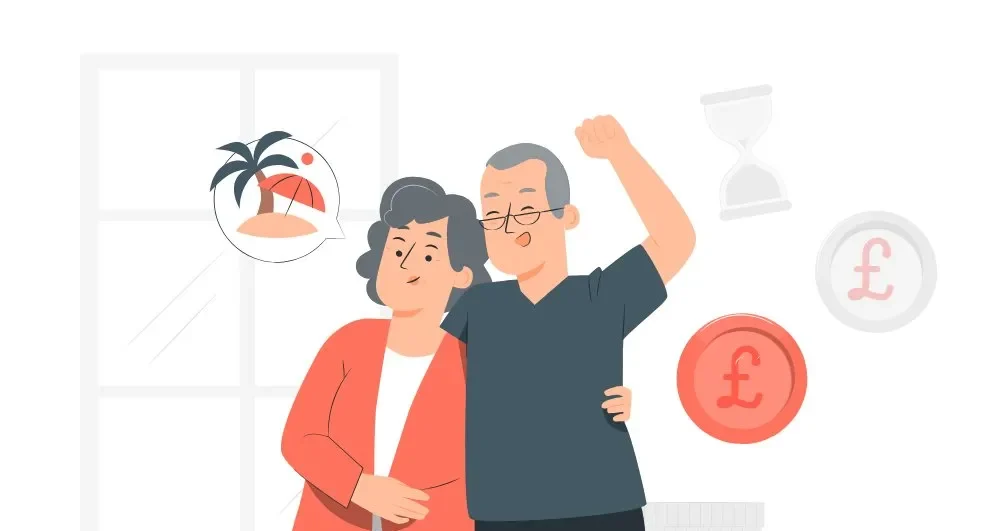
Use Individual Savings Accounts (ISAs)
Individual Savings Accounts, commonly known as ISAs, are versatile financial tools designed to help you save and invest while enjoying significant tax benefits. Here's a closer look at how ISAs work:
If you opt for a Cash ISA, it's advisable to keep track of when any introductory interest rates expire. You might want to set a reminder for this purpose and consider shopping around for the best deals.
The appeal of Cash ISAs lies in their tax efficiency. You won't have to pay Income Tax on the interest you earn from these accounts.
For those interested in investing in stocks and shares, a Stocks and Shares ISA is the go-to choice.
One of the standout features of a Stocks and Shares ISA is the ability to invest up to the annual allowance, which was £20,000 for the 2023/24 tax year. This allowance can be split between Stocks and Shares ISAs and Cash ISAs or allocated to either, according to your preferences.
Utilise Your Personal Allowance
One of the fundamental ways to save taxes on pension income in the UK is to make the most use of your annual tax-free personal allowance. The government grants every individual a tax-free personal allowance.
This allowance is a specific amount of money you can earn in a tax year without being required to pay any Income Tax on it. This means ensuring that your total taxable income for the year remains below the threshold set by the personal allowance.
Seek Professional Advice
Obtaining professional advice from a certified financial advisor or tax specialist is a prudent step in managing your unique financial situation.
These experts offer personalised guidance, leveraging their in-depth knowledge and experience to navigate complex tax laws, optimise tax efficiency, and develop tailored financial plans.
Their expertise not only ensures you make well-informed decisions but it also provides peace of mind, assuring that your financial resources are managed strategically for a secure financial future.
It's crucial to be aware that tax laws and regulations change over time, and the specific rules that apply to your pension income may vary based on factors such as your age, the type of Pension Scheme you have, and the total value of your pension savings.
Consulting with a professional who is up to date with current tax laws is crucial to making informed decisions about managing your pension income in a tax-efficient manner.
Stay Ahead of "Payroll Tax Reporting Regulations" – Read the Full Article Now for Expert Insights on Ensuring Compliance.
Tax Relief on Pension Income for Individuals with Limited Life Expectancy
When it comes to pension income and taxes, there exists a unique and compassionate provision for individuals facing a daunting reality.
In circumstances where one's life expectancy is less than a year due to a severe illness, there's an opportunity to avoid full taxation on your pension income.

This provision allows for the possibility of taking the entirety of your pension as a tax-free lump sum, provided all of the following conditions are met:
- Your life expectancy is anticipated to be under a year due to a severe illness.
- You are below the age of 75.
- Your pension savings do not exceed the lifetime allowance of £1,073,100.
This provision serves as both a financial relief and an acknowledgement of the hardships faced during such trying times. It underscores the compassionate side of tax regulations, offering a glimmer of support when it's needed most.
While it may not alleviate the emotional burden, it can certainly provide some financial respite for those in these exceptional circumstances.
Unlock the Power of "UK Payroll Taxes and Deductions for Employers". Dive into the World of Taxes and Deductions for Employers. Read the Full Guide Now.
Conclusion
In a nutshell, while talking about taxes may not be the most exciting thing, it's super important when you're planning for your retirement. This article has gone over all the nitty-gritty details of how taxes work on your pension income.
The goal here is to give you the knowledge you need to make smart choices and potentially pay less in taxes when you're enjoying your retirement.
As you aim to make the most of your retirement savings, remember that how you deal with taxes can make a big difference. You've got options like taking a tax-free lump sum or using strategies like flexible drawdown and ISAs to save on taxes.
And if you're in a special situation where you have limited life expectancy due to serious illness, there's even a compassionate provision that can help.
So, stay informed, consider seeking professional advice, and make sure you're all set to enjoy a financially secure retirement.
